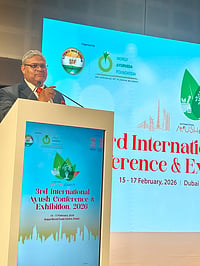The advent of the digital age has altered our perception of borders, value, and money through cryptocurrencies. With transactions now able to cross continents in a matter of seconds, it is important to properly consider crypto regulation and oversight on the global marketplace to ensure transparency for consumers and financial stability for customers.
Having said this, regulations still cannot keep pace with the velocity of the change rolled out through cryptocurrency innovation. As a result from its decentralized and global nature, regulators are unable to appropriately enforce cryptocurrency regulations and materially unregistered foreign entities can take advantage of jurisdictional voids. On a national level, regulators and on a multinational level the Financial Action Task Force-FATF, International Monetary Fund-IMF, Organization for Economic Cooperation and Development (OECD), and G20, are developing a framework aimed at finding equilibrium between cryptocurrency innovation, accountability and trust.
This article addresses how countries are changing, how the world is collaborating for oversight and why the FATF review is signaling an alarm on the real risks posed by unregistered foreign cryptocurrency entities.
The Development of Cryptocurrency Regulation
The regulation of cryptocurrency has transitioned from denial to awareness and necessity. The introduction of Bitcoin in 2009 was a form of financial freedom, representing a decentralized alternative to currency supported by state currency. While at the same time it retained anonymity, which attracted several illicit use cases to gain international visibility.
Early Stage: The Era of Experimentation (2009-2015)
Cryptocurrencies were misunderstood and mostly unregulated.
Exchanges operated without any KYC (Know Your Customer).
Governments did not recognize any financial risk with crypto; rather it was a unique innovation.
Middle Stage (2016-2020): The Era of Acknowledgment
FATF began developing guidance related to VASPs, or virtual asset service providers.
Scams associated with initial coin offerings (ICOs) resulted in tougher DST (Securities) laws.
Japan, South Korea, and others adopted licenses to operate.
Current Stage (2021-Present): The Global Call for Standards
The EU’s MiCA regulation, but also through the US SEC-CFTC action provided oversight.
The FATF travel rule is the centerpiece of AML compliance.
Countries began converging to international standards to establish credibility in the marketplace.
The trend is evident — crypto is embarking on an era of accountability.
The Importance of Global Oversight
The borderless attributes of crypto assets allow for unique innovation, enabling individuals and institutions to transact, invest, and store value in new ways, globally. However, that borderless characteristic also creates a condition for regulatory arbitrage when firms operate in jurisdictions that impose fewer restrictions and do not comply with stricter requirements. This erodes local regulations, while also augmenting the risks of fraud, money laundering, and market manipulation on the global market.
Why Oversight Is Crucial
Protect Investors: Prevent fraud, scams, and market manipulation, ensuring that traders and holders can participate in crypto markets with confidence.
Curb Illicit Finance: Detect money laundering, terrorist financing, sanctions evasion, and other criminal activities that exploit the anonymity of digital assets.
Ensure Market Stability: Maintain orderly markets, reduce extreme volatility, and foster institutional participation by creating a predictable regulatory environment.
Enable Global Cooperation: Harmonize rules across jurisdictions to prevent regulatory gaps, improve cross-border supervision, and strengthen international financial integrity.
Promote Responsible Innovation: Encourage legitimate technological advancements while ensuring that new crypto products adhere to safety and transparency standards.
Enhance Public Confidence: Build trust in the emerging digital economy by demonstrating that regulators are capable of safeguarding participants without stifling innovation.
Without robust oversight, the transparency that blockchain promises can easily be undermined, and trust — the very foundation of finance — begins to erode, making markets vulnerable to manipulation and illicit activity.
Global Cooperation: Key International Bodies in Crypto Regulation
The complexity of crypto demands collective action. Several global organizations now guide and coordinate international regulatory policies.
Organization | Primary Focus | Key Contributions |
FATF | AML/CFT standards for virtual assets | Travel Rule global compliance monitoring |
IMF | Macro-financial stability | Policy advice on CBDCs and crypto integration |
OECD | Tax transparency | Crypto-Asset Reporting Framework (CARF) |
BIS | Central bank cooperation | Research on digital currencies and tokenized assets |
G20 | Global coordination | Drives regulatory harmonization efforts |
Each plays a unique role in guiding crypto markets toward safe, compliant growth.
FATF’s Focus: Tackling Unregistered Foreign Crypto Players
The Financial Action Task Force (FATF) — the world’s top intergovernmental body combating money laundering and terrorist financing — released its sixth targeted review on global crypto regulation. The findings sounded a clear warning: unregistered foreign crypto players remain a systemic risk to global financial integrity.
FATF’s Sixth Targeted Review
The FATF report found that many jurisdictions still face major challenges in identifying the natural persons or entities behind offshore crypto activities. Despite several policy advances, enforcement remains patchy, and transparency is lagging.
Travel Rule Implementation: Mixed Global Progress
The FATF’s Crypto Travel Rule — introduced in 2019 — requires Virtual Asset Service Providers (VASPs) such as exchanges and custodians to identify and share transaction data for transfers above a specified threshold. The intent is to ensure traceability and prevent illicit financial flows.
However, according to FATF’s latest findings:
73% of jurisdictions have enacted Travel Rule legislation.
Only 35 of 85 jurisdictions have begun formal enforcement.
FATF emphasized that laws without enforcement fail to deter illicit behavior.
To aid countries, FATF released “Best Practices in Travel Rule Supervision”, offering operational guidance to make the framework more effective in practice.
India's Strategy to Address Offshore Non-Compliance
India provides a valuable example of the active enforcement of regulation, demonstrating how government authorities can obtain control over the crypto marketplace that continues to be increasingly globalized.
In March 2023, the Government of India made a significant move in this arena by formally labeling crypto service providers as reporting entities under the Prevention of Money Laundering Act (PMLA). This designation mandated all exchanges—regardless of whether they were established in India or not—to register with its Financial Intelligence Unit (FIU-India) as a reporting entity and therefore all exchanges would be required to live up to the same standards for transparency and reporting required for financial institutions.
The domestic exchanges quickly complied with the new requirement, although the foreign exchanges resisted, arguing either that indefensible jurisdictional issues arose or operational impediments arose that made compliance with Indian law impossible. India's response was decisive. By December 2023, more than one offshore exchange had received notices from the Ministry of Finance of compliance issues, and ultimately, notices were issued to 19 non-compliant exchanges blocking such entities from further access to Indian citizens and being in violation of the Indian AML provisions.
The country continued its strong stance, when FIU-India sent another round of non-compliance notices to 25 offshore crypto players, including:
Singapore-based CoinW
UK-registered BTCC
Hong Kong’s Changelly
US-based Paxful
Cambodia’s Huione Group
Curaçao-based BC.Game
Seychelles-registered BitMex
These actions underline India’s zero-tolerance approach to regulatory evasion. However, as the FATF’s latest review highlights, this is not a challenge unique to India. Around the world, many offshore crypto players tend to comply only after enforcement pressure, revealing a systemic issue in global compliance culture.
India’s experience demonstrates that strong, enforceable frameworks combined with decisive action are essential to protect national interests, ensure financial integrity, and establish accountability within the global crypto ecosystem.
The Perils of Offshore Exchanges
Unregistered or foreign crypto platforms operating without local oversight present multiple dangers:
Financial Risk: Users lack legal recourse if funds are lost or stolen.
National Security Threat: Potential misuse for laundering, sanctions evasion, or terror financing.
Economic Risk: Drains liquidity from domestic markets, undermining compliant players.
Many countries — including the U.S., Japan, South Korea, and India — are taking steps to:
Mandate local registration for all foreign exchanges.
Impose higher taxes or penalties for unregulated players.
Block access to non-compliant platforms.
Pursue criminal or financial sanctions against repeat offenders.
The FATF’s findings confirm that strong enforcement — not just regulation — is vital to protect both citizens and the integrity of global markets.
Regional Approaches to Crypto Oversight
Different regions adopt varied strategies based on economic goals and regulatory maturity.
North America
U.S.: Regulatory fragmentation between SEC, CFTC, and FinCEN; ongoing disputes over token classification.
Canada: Mandates registration of exchanges with the Canadian Securities Administrators (CSA) and enforces AML compliance.
Europe
EU: The MiCA Regulation (2024) introduced a uniform crypto licensing regime.
UK: Overseen by the Financial Conduct Authority (FCA), focusing on consumer protection and AML registration.
Asia-Pacific
Japan: One of the first countries to legalize and regulate crypto under the Payment Services Act.
Singapore: Oversees crypto firms under the Payment Services Act with robust AML/KYC requirements.
India: Implements AML enforcement via FIU-India; yet to finalize comprehensive legislation.
Middle East
UAE (Dubai VARA): Developing specialized frameworks for virtual assets.
Saudi Arabia: Taking a measured approach through pilot projects.
Latin America
Brazil: Legalized crypto payments; regulated exchanges under central bank oversight.
Argentina: Exploring taxation and consumer safeguards for crypto traders.
This regulatory mosaic reinforces the need for global harmonization.
Challenges in Regulating a Borderless Market
The crypto landscape poses inherent challenges to regulators worldwide.
Key Obstacles
Jurisdictional Ambiguity: Difficult to define legal responsibility across borders.
Inconsistent Definitions: “Security” vs. “commodity” classifications differ globally.
Data Privacy Dilemmas: Balancing KYC requirements with privacy rights.
Rapid Innovation: Technology often outpaces regulation.
Unregistered Offshore Entities: Persistent non-compliance despite global efforts.
Pros and Cons of Strong Regulation
Pros | Cons |
Enhances investor confidence | May slow innovation |
Prevents illicit activity | Increases operational costs |
Encourages institutional participation | Could drive projects offshore |
Builds long-term stability | Risk of overregulation |
The challenge lies in balancing freedom with responsibility.
Moving Toward Global Harmonization
To create a transparent global crypto market, countries must collaborate through:
Unified KYC/AML protocols to simplify compliance.
Real-time information exchange among regulators.
Public-private partnerships leveraging blockchain analytics.
Mutual recognition of licenses to facilitate cross-border operations.
Efforts like OECD’s CARF and FATF’s Travel Rule are early examples of this shift toward unified global standards.
The Future: Regulation Through Innovation
The next phase of crypto regulation is poised to evolve beyond static compliance checklists and into a realm of tech-driven oversight. This shift marks the rise of RegTech (Regulatory Technology) and SupTech (Supervisory Technology) — innovative frameworks that use automation, data analytics, and blockchain itself to improve monitoring without stifling innovation.
While traditional regulatory systems often lag behind the speed of blockchain innovation, RegTech and SupTech promise a real-time, data-backed approach to compliance. Instead of manual audits or post-incident investigations, these tools can flag suspicious patterns as they happen, offering agility and precision to both regulators and crypto entities.
Emerging Trends in Tech-Led Oversight
AI-powered compliance tools that use machine learning to detect suspicious transaction patterns and reduce false positives, improving AML (Anti-Money Laundering) efficiency.
On-chain audits and Proof-of-Reserves, enabling exchanges and custodians to publicly demonstrate asset solvency and build user trust through blockchain transparency.
Integration of CBDCs (Central Bank Digital Currencies) into legal crypto frameworks, fostering smoother cross-border settlements and enhancing regulatory visibility.
Tokenization of traditional assets like real estate or government bonds, merging the legacy financial system with decentralized technology and expanding the scope of supervision.
In this landscape, transparency becomes programmable—embedded into the system architecture rather than imposed externally. The future of crypto regulation will depend on how effectively regulators leverage technology as an ally, not an obstacle. Those jurisdictions that adopt a balanced, innovation-first approach will likely lead the next chapter of financial evolution, where compliance and creativity coexist on-chain.
Conclusion
Crypto’s promise lies in open, borderless innovation, but without coordinated oversight, that freedom can invite exploitation. The FATF’s 2025 review and India’s enforcement experience show that unregistered foreign crypto players pose a tangible global risk — undermining both investor trust and national financial security.
To ensure transparency in this evolving borderless market, governments must align under shared principles: clarity, cooperation, and compliance.
The road ahead is challenging, but global oversight done right will transform crypto from a regulatory puzzle into a transparent, trusted pillar of the modern financial system.
FAQs: Crypto Regulations & Global Oversight
1. What is the FATF and why is it important for crypto?
The Financial Action Task Force sets global AML/CFT standards to prevent money laundering and terror financing, including in crypto.
2. What are unregistered foreign crypto players?
They are offshore crypto platforms that operate without local registration or AML compliance, often posing regulatory risks.
3. What is the Travel Rule in crypto?
It requires exchanges and VASPs to share sender and receiver data for crypto transactions above a certain threshold to ensure traceability.
4. How has India responded to offshore crypto players?
India’s FIU has issued notices and blocked several non-compliant foreign exchanges for violating AML laws under the PMLA.
5. Why is global cooperation necessary?
Because crypto operates without borders, unified global oversight ensures consistent enforcement and prevents regulatory loopholes.
6. Can stricter regulation harm innovation?
Yes, but balanced regulation that encourages compliance while allowing flexibility can promote responsible innovation.
7. What’s next for crypto oversight?
Broader enforcement of FATF standards, real-time monitoring, and integration of advanced compliance technologies globally.

























